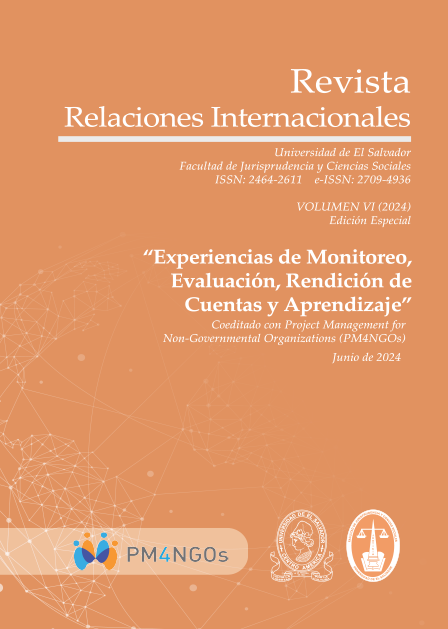Analysis of STEM careers with a gender approach from the USAID-HEA Project in El Salvador
Keywords:
STEM, gender approach, higher education institutions, development projects, study programsAbstract
This academic article focuses on analyzing the USAID Project: "Higher Education for Economic Growth" (HEA), implemented from 2014 to 2019. Specifically, it will focus on component two, named: "Enhanced Relevance and Quality of Curricula and Research", where one of its objectives was the updating and creation of new careers in the study programs of Higher Education Institutions (HEIs) to meet the needs of the industry as an important part of improving the country's economy and innovation. In these educational improvements, STEM careers (Science, Technology, Engineering, and Mathematics) play a predominant role, as they constitute the starting point for the training of future professionals who will be involved in the Salvadoran industry's workforce. Since STEM careers are predominantly studied by men, the project's provision of indicators related to the gender mainstreaming axis was investigated, aiming for significant incorporation of women in these careers using quantitative methods, with statistical data from the Ministry of Education and those provided by the project. Additionally, scholarships granted to both men and women were considered to determine if this contributed to the increased inclusion of women in STEM careers and if gender parity existed in the results obtained through the grants.
Downloads
References
“El Salvador – Inauguran “Science Girl Camp”: una alianza entre la Universidad Don Bosco y USAID”. Agenzia Info Salesiana (15 de junio de 2017). https://www.infoans.org/es/sezioni-eventi/item/3457-el-salvador-inauguran-science-girl-camp-una-alianza-entre-la-universidad-don-bosco-y-usaid
“MINEDUCYT: Ministerio de Educación, Ciencia y Tecnología”. Información Estadística de Educación Superior, acceso el 26 de septiembre de 2023, https://www.mined.gob.sv/educacion-superior/?wpdmc=informacion-estadistica-de-educacion-superior
García Aretio, Lorenzo. "COVID-19 y educación a distancia digital: preconfinamiento, confinamiento y posconfinamiento". Revista Iberoamericana de Educación a Distancia, vol. 24, no. 1 (2021): 9-32. https://www.redalyc.org/articulo.oa?id=331464460001
Guzmán, José Luis. Taller de consulta: ideas preliminares para un nuevo proyecto de educación superior. San Salvador: USAID, 2012.
Management Systems International, Performance Evaluation of the Partnership for Growth in El Salvador. San Salvador: USAID, 2017.
Martínez Oviedo, Yesenia. Implementación del Programa Science Girl Camp. San Salvador: Universidad Don Bosco, 2022. http://www2.uca.edu.sv/upload_w/7/archivo/1636130591-61855f1fc2b97.pdf
RTI International, Proyecto de Educación Superior para el Crecimiento Económico: informe anual del año fiscal 2017. San Salvador: USAID, 2017. https://pdf.usaid.gov/pdf_docs/PBAAJ571.pdf
RTI International, Proyecto de Educación Superior para el Crecimiento Económico: informe final del 6 de junio de 2014 al 5 de junio de 2019. San Salvador: USAID, 2019. https://pdf.usaid.gov/pdf_docs/PA00TS6B.pdf
RTI International, Proyecto de Educación Superior para el Crecimiento Económico. San Salvador: USAID, 2015. https://pdf.usaid.gov/pdf_docs/pbaaj740.pdf
RTI International, Proyecto de USAID de Educación Superior para el Crecimiento Económico: Análisis de género, julio-agosto de 2015. San Salvador: USAID, 2015. https://pdf.usaid.gov/pdf_docs/pbaaj744.pdf
Downloads
Published
Issue
Section
License
Copyright (c) 2024 Revista Relaciones Internacionales

This work is licensed under a Creative Commons Attribution-NonCommercial 4.0 International License.
The authors transfer the copyright rights in favor of the Faculty of Jurisprudence and Social Sciences of the University of El Salvador (through Aequus Editorial) to include their writing in Revista Relaciones Internacionales.








